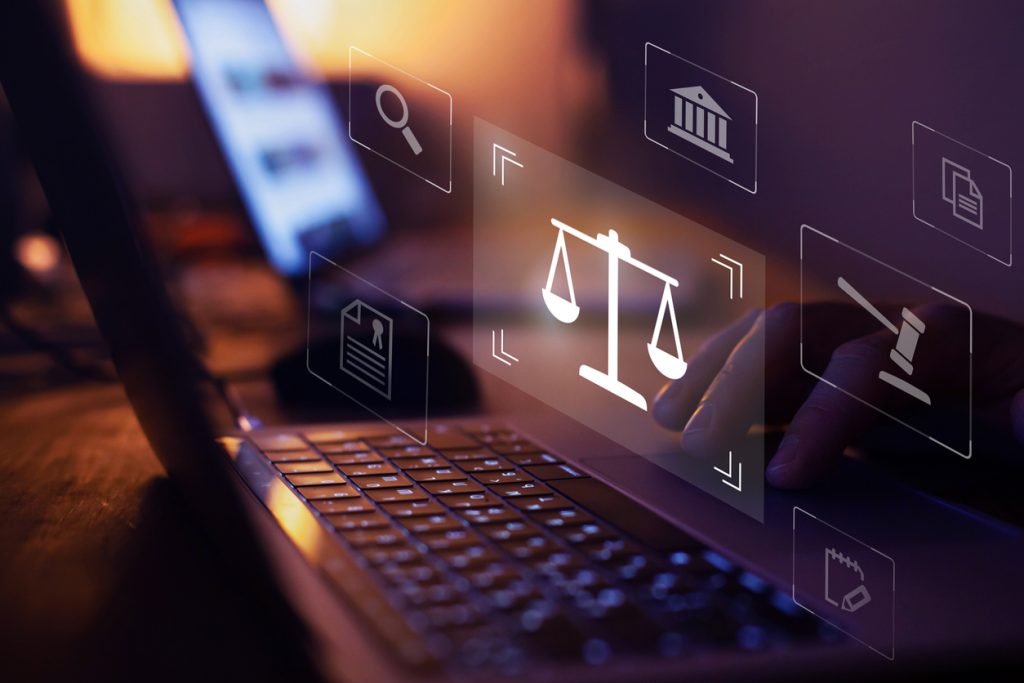When considering the industries that emerging technology can affect, the field of law practice is the least likely one to come to mind.
However, the impact of growing technological advancements on the legal field has been significant and far-reaching, transforming many facets of legal practice. Technology has completely changed how attorneys gather evidence, formulate cases, interact with clients, and oversee their workflow.
Legal technology has risen to prominence in recent years, automating and refining conventional legal procedures while also highlighting new efficiencies. According to Statista, legal tech market revenues are expected to reach 35.6 billion U.S. dollars by 2027.
In this article, we aim to unravel the impact of technology on law and explore how lawyers use technology to transform their legal operations and maximize efficiency.
Legal research is essential to the practice of law because it forms the basis for case preparation and legal decision-making. Law professionals use research to analyze precedents, interpret law, examine statutes, and formulate convincing legal arguments.
Legal research has seen one of the biggest effects of technology on the practice of law. Reading through legal documents and case law used to be a tedious and time-consuming process. But now that digital databases and legal research platforms have been developed, legal practitioners have instant access to an abundance of legal data, including case law, constitutions, statutes, agreements, law reviews, court opinions, attorney directories, regulations, and much more. The digitization of legal sources has made legal research more accessible, efficient, and accurate and has expedited the analysis of legal data.
There are several ways data science solutions can help revolutionize legal practice. Examples of the most common ones are as follows:
·Document review
During the discovery process, it takes attorneys too many hours to read and sort through voluminous legal papers. Data science has transformed the process of finding, gathering, and analyzing electronic documents and data for legal purposes. ML-based document review tools make it easier for lawyers to review and classify large volumes of electronic documents by automating these tedious processes.
·Data-driven litigation strategy
Data science has proven useful for developing litigation tactics. It helps lawyers examine patterns in past cases and analyze case law to anticipate arguments from opposing counsel and modify their strategy accordingly. Decision support systems enable lawyers to develop persuasive arguments, thereby attaining favourable outcomes for their clients.
Artificial intelligence: the impact of the technology on law
AI technologies have found their way into the legal sector, providing legal practitioners with a number of powerful tools and smart virtual assistants to accelerate research, streamline legal operations, and minimize the likelihood of errors. According to a Goldman Sachs report, 44% of legal work could be automated by emerging AI tools. So how do lawyers use the technology?
·A new level of legal research and e-discovery
Legal research has reached entirely new heights, thanks to artificial intelligence. Due to their ability to analyze large sets of legal data, AI-driven legal research tools can help lawyers find relevant precedents, case law, regulations, and statutes at a fraction of the cost and time. By utilizing AI capabilities, lawyers can simultaneously search many data sources and digital documents for certain words, phrases, or other written evidence. This has completely changed the way legal practitioners prepare for trials, giving them the ability to create arguments and methods that work better. You may want to enlist the help of skilled AI consultants to opt for the artificial intelligence solution that will work best for your law firm.
·Predictive legal analysis
One of the most significant ways AI technology has impacted law is through predictive analytics. Predictive modelling and legal analytics tools examine legal data to find insights that can guide decision-making and legal strategy. AI-powered technologies enable lawyers to assess litigation risks, predict case outcomes, and make more informed decisions based on data-driven insights, thereby offering more value to their clients.
·Contract review
Contract analysis is a fundamental part of legal practice. AI tools can review contracts and extract insights into potential risks or compliance issues.
Use of generative AI in legal practice
While Gen AI still remains a nascent realm for many law practitioners and firms, in a recent survey of law firm lawyers, 82% indicated they believe that ChatGPT and generative AI can be readily applied to legal work. While generative AI won’t completely oust legal professionals, it has the potential to fundamentally change the nature of law practice. A generative AI consulting firm can help you better understand how the technology can reshape your legal operations. The following are some of the examples of generative AI use cases in the legal sector:
·Automation
The biggest impact of Gen AI technology on law is improving the efficiency of legal work using automation. Lawyers can use virtual assistants not only to answer simple legal questions but also as a legal search engine that can quickly sift through vast legal databases to find relevant precedents and case law. Equipped with NLP capabilities, these assistants are invaluable in automating time-consuming operations such as contract checking, legal translations, and document management.
·Document generation
Virtual assistants can aid in generating routine legal documents, for example, contract drafting. Lawyers input specific requirements or details (names, addresses, etc.) into the app, and it automatically creates a contract with standard clauses. Attorneys only need to modify a few parameters to customize the contract for the particular transaction.
·Chatbots for legal advice
Legal practitioners find smart virtual assistants helpful especially for supporting their workflow. These assistants enable clients to instantly find answers to legal questions without the need to speak to a lawyer. AI-powered chatbots can manage routine client inquiries, provide basic legal information, and give legal advice and guidance, thereby offering a way for law firms to enhance client engagement and allow attorneys to focus on more complex tasks.
Closing thoughts
The combination of technology and law is not a mere trend; it is a reflection of society's overall tendency toward greater digitization. Legal practice is known for its lengthy hours and hefty workloads, so there is a lot of room for improvement. This is where emerging technology comes in handy.
Legal technology has redefined the legal system, bringing optimization and efficiency to everyday legal operations. It is reshaping the legal profession by conducting time-consuming legal research and review, predicting litigation outcomes, drafting documents, managing cases, and taking over many other administrative tasks that take up too much of a lawyer’s time. Spending part of this time on higher-level legal tasks that require human expertise would be well worth the investment in new legal technology solutions.




















